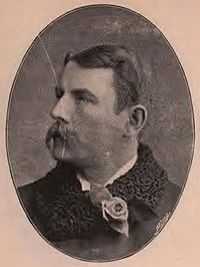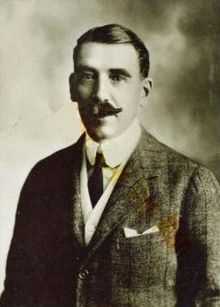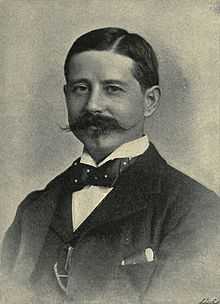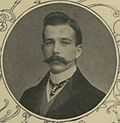Rochester (UK Parliament constituency)
| Rochester | |
|---|---|
|
Former Borough constituency for the House of Commons | |
| County | Kent |
| 1295–1918 | |
| Number of members |
1295–1885: Two 1885–1918: One |
| Replaced by |
Chatham Gillingham Medway |
Rochester was a parliamentary constituency in Kent. It returned two members of parliament (MPs) to the House of Commons of England from 1295 to 1707, then to the House of Commons of Great Britain from 1708 to 1800, and finally to the House of Commons of the Parliament of the United Kingdom from 1801 until the 1885 general election, when its representation was reduced to one seat.
In 1918, it was split between Chatham, Gillingham and the "old", rural, Medway constituency. The Chatham seat became Rochester and Chatham in 1950, and then Medway in 1983. When the boroughs of Rochester upon Medway and Gillingham merged to form the larger unitary Borough of Medway in 1998, the Parliamentary constituency of Medway only covered part of the new borough, so for the next election it will be renamed Rochester and Strood.
Members of Parliament
MPs 1295–1640
- This list is incomplete; you can help by expanding it.
| Parliament | First member | Second member | |
|---|---|---|---|
| 1386 | John Fleming | Peter Pope[1] | |
| 1388 (Feb) | William Gillingham I | John Marchaunt I[1] | |
| 1388 (Sep) | Richard Crowborough | Thomas White[1] | |
| 1390 (Jan) | Richard Bolour | John Mateshale[1] | |
| 1390 (Nov) | |||
| 1391 | Thomas Dudmere | William Gillingham II[1] | |
| 1393 | William Chylynden | William Osbourne[1] | |
| 1394 | |||
| 1395 | Richard Broke | Thomas Taverner[1] | |
| 1397 (Jan) | John Plomer II | John Precy[1] | |
| 1397 (Sep) | |||
| 1399 | William Frere | John Precy[1] | |
| 1401 | Richard Berde | Reynold Shrewsbury[1] | |
| 1402 | Thomas Dudmere | Reynold Shrewsbury[1] | |
| 1404 (Jan) | Thomas Dunston | William Frere[1] | |
| 1404 (Oct) | Thomas Dudmere | Richard Lorkyn[1] | |
| 1406 | Thomas Chertsey | Reynold Shrewsbury[1] | |
| 1407 | John Everard I | John Bosom[1] | |
| 1410 | John Alcate | Thomas Chertsey[1] | |
| 1411 | John Everard I | Roger Landford[1] | |
| 1413 (Feb) | |||
| 1413 (May) | John Deeping | Roger Landford[1] | |
| 1414 (Apr) | |||
| 1414 (Nov) | John Deeping | Richard Lorkyn[1] | |
| 1415 | |||
| 1416 (Mar) | Robert Bury | John Potager[1] | |
| 1416 (Oct) | |||
| 1417 | Thomas Bolour | John Marchaunt III[1] | |
| 1419 | William Hunt I | Robert Kela[1] | |
| 1420 | John Draper | Thomas Turner[1] | |
| 1421 (May) | |||
| 1421 (Dec) | John Deeping | John Marchaunt III[1] | |
| 1510–1523 | No names known[2] | ||
| 1529 | Nicholas Hurleston, died and repl. by 1533 by Edmund Page | Robert Fisher[2] | |
| 1536 | ? | ||
| 1539 | ? | ||
| 1542 | ? | ||
| 1545 | Sir Thomas Moyle | William Roper[2] | |
| 1547 | Sir Thomas Moyle | William Roper[2] | |
| 1553 (Mar) | Sir John Norton | Christopher Roper[2] | |
| 1553 (Oct) | Sir Thomas Moyle | Robert Darknall[2] | |
| 1554 (Apr) | Sir Thomas Moyle | William Roper[2] | |
| 1554 (Nov) | William Roper | Edward Baeshe[2] | |
| 1555 | Sir George Howard | Sir William Brooke alias Cobham[2] | |
| 1558 | Hugh Cartwright | Thomas Page[2] | |
| 1559 | Edward Baeshe | Thomas Brooke alias Cobham[3] | |
| 1562/3 | Edward Baeshe | Richard Watts[3] | |
| 1571 | William Holstock | George Catlyn[3] | |
| 1572 | George Catelyn | William Partridge, sick and repl. 1579 by Samuel Coxe[3] | |
| 1584 | William Brooke alias Cobham | George Byng[3] | |
| 1586 | William Brooke alias Cobham | William Lewin[3] | |
| 1588 | William Lewin | John Stanhope[3] | |
| 1593 | William Lewin | George Chowne[3] | |
| 1597 | Sir Edward Hoby | Sir Thomas Walsingham[3] | |
| 1601 | Sir Edward Hoby | Sir Thomas Walsingham[3] | |
| 1604 | Sir Edward Hoby | Sir Thomas Walsingham | |
| 1614 | Sir Edward Hoby | Sir Anthony Aucher refused to serve and replaced by Sir Edwin Sandys | |
| 1621–1622 | Sir Thomas Walsingham (younger) | Henry Clerke | |
| 1624 | Maximilian Dallison | Sir Thomas Walsingham (elder) | |
| 1625 | Henry Clerke | Sir Thomas Walsingham (elder) | |
| 1626 | Henry Clerke | Sir Thomas Walsingham (elder) | |
| 1628 | Sir Thomas Walsingham (younger) | William Brooke | |
| 1629–1640 | No Parliaments summoned | ||
MPs 1640–1885
MPs 1885–1918
| Election | Member | Party | |
|---|---|---|---|
| 1885 | Francis Charles Hughes-Hallett | Conservative | |
| 1889 by-election | Edward Knatchbull-Hugessen | Liberal | |
| 1892 | Horatio David Davies | Conservative | |
| 1893 by-election | Viscount Cranborne | Conservative | |
| 1903 by-election | Charles Tuff | Conservative | |
| 1906 | Ernest Lamb | Liberal | |
| 1910 | Samuel Forde Ridley | Conservative | |
| 1910 | Sir Ernest Lamb | Liberal | |
| 1918 | constituency abolished: see Chatham and Gillingham | ||
Notes
- ↑ 1.0 1.1 1.2 1.3 1.4 1.5 1.6 1.7 1.8 1.9 1.10 1.11 1.12 1.13 1.14 1.15 1.16 1.17 1.18 1.19 1.20 1.21 1.22 1.23 "History of Parliament". History of Parliament Trust. Retrieved 16 November 2011.
- ↑ 2.0 2.1 2.2 2.3 2.4 2.5 2.6 2.7 2.8 2.9 "History of Parliament". History of Parliament Trust. Retrieved 16 November 2011.
- ↑ 3.0 3.1 3.2 3.3 3.4 3.5 3.6 3.7 3.8 3.9 "History of Parliament". History of Parliament Trust. Retrieved 16 November 2011.
- ↑ Vernon was also elected for Ipswich, which he chose to represent, and did not sit for Rochester
- ↑ Rear Admiral from 1787
- ↑ Rear Admiral from 1805
Elections
Elections in the 1880s

| General Election 1885: Rochester[1] | |||||
|---|---|---|---|---|---|
| Party | Candidate | Votes | % | ±% | |
| Conservative | Francis Charles Hughes-Hallett | 1,627 | 54.0 | n/a | |
| Liberal | John Passmore Edwards | 1,386 | 46.0 | n/a | |
| Majority | 241 | 8.0 | n/a | ||
| Turnout | 91.2 | n/a | |||
| Conservative win | |||||
| General Election 1886: Rochester[2] | |||||
|---|---|---|---|---|---|
| Party | Candidate | Votes | % | ±% | |
| Conservative | Francis Charles Hughes-Hallett | 1,602 | 54.2 | +0.2 | |
| Liberal | Francis Flint Belsey | 1,353 | 45.8 | -0.2 | |
| Majority | 249 | 8.4 | |||
| Turnout | 89.4 | ||||
| Conservative hold | Swing | +0.2 | |||
| Rochester by-election, 1889[3] | |||||
|---|---|---|---|---|---|
| Party | Candidate | Votes | % | ±% | |
| Liberal | Hon. Edward Knatchbull-Hugessen | 1,655 | 51.2 | ||
| Conservative | Horatio David Davies | 1,580 | 48.8 | ||
| Majority | 75 | 2.4 | |||
| Turnout | 91.1 | ||||
| Liberal gain from Conservative | Swing | ||||
Elections in the 1890s

| General Election 1892: Rochester[4] | |||||
|---|---|---|---|---|---|
| Party | Candidate | Votes | % | ±% | |
| Conservative |
|
2,119 | 55.3 | +6.5 | |
| Liberal | F.B. Maddison | 1,712 | 44.7 | -6.5 | |
| Majority | 407 | 10.6 | 13.0 | ||
| Turnout | 91.0 | -0.1 | |||
| Conservative gain from Liberal | Swing | +6.5 | |||
- unseated on petition.

| Rochester by-election, 1893[5] | |||||
|---|---|---|---|---|---|
| Party | Candidate | Votes | % | ±% | |
| Conservative | Viscount Cranborne | unopposed | n/a | n/a | |
| Conservative hold | Swing | n/a | |||

| General Election 1895: Rochester[6] | |||||
|---|---|---|---|---|---|
| Party | Candidate | Votes | % | ±% | |
| Conservative | Viscount Cranborne | 2,152 | 56.3 | n/a | |
| Liberal | Cecil Alfred Grenfell | 1,673 | 43.7 | n/a | |
| Majority | 479 | 12.6 | n/a | ||
| Turnout | 87.4 | n/a | |||
| Conservative hold | Swing | n/a | |||
Elections in the 1900s
| General Election 1900: Rochester[7] | |||||
|---|---|---|---|---|---|
| Party | Candidate | Votes | % | ±% | |
| Conservative | Viscount Cranborne | unopposed | n/a | n/a | |
| Conservative hold | Swing | n/a | |||

| Rochester by-election, 1903 | |||||
|---|---|---|---|---|---|
| Party | Candidate | Votes | % | ±% | |
| Conservative | Charles Tuff | 2,504 | 55.8 | n/a | |
| Liberal | Sir Henry Hamilton Johnston | 1,983 | 44.2 | n/a | |
| Majority | 521 | 11.6 | n/a | ||
| Turnout | 4,487 | 86.2 | n/a | ||
| Conservative hold | Swing | n/a | |||

| General Election 1906: Rochester[8] | |||||
|---|---|---|---|---|---|
| Party | Candidate | Votes | % | ±% | |
| Liberal | Ernest Henry Lamb | 2,967 | 55.6 | ||
| Conservative | Charles Tuff | 2,374 | 44.4 | ||
| Majority | 593 | 11.2 | |||
| Turnout | 92.7 | ||||
| Liberal gain from Conservative | Swing | ||||
Elections in the 1910s
| General Election January 1910: Rochester[9] | |||||
|---|---|---|---|---|---|
| Party | Candidate | Votes | % | ±% | |
| Conservative | Samuel Forde Ridley | 2,675 | 51.3 | ||
| Liberal | Ernest Henry Lamb | 2,543 | 48.7 | ||
| Majority | 132 | 2.6 | |||
| Turnout | 92.7 | ||||
| Conservative gain from Liberal | Swing | ||||
| General Election December 1910: Rochester[10] | |||||
|---|---|---|---|---|---|
| Party | Candidate | Votes | % | ±% | |
| Liberal | Ernest Henry Lamb | 2,609 | 51.5 | +2.8 | |
| Conservative | Samuel Forde Ridley | 2,456 | 48.5 | -2.8 | |
| Majority | 153 | 3.6 | 5.6 | ||
| Turnout | 90.0 | ||||
| Liberal gain from Conservative | Swing | +2.8 | |||
General Election 1914/15:
Another General Election was required to take place before the end of 1915. The political parties had been making preparations for an election to take place and by the July 1914, the following candidates had been selected;
- Liberal: Sir Ernest Henry Lamb
- Unionist:
References
- ↑ British parliamentary election results, 1885-1918 (Craig)
- ↑ British parliamentary election results, 1885-1918 (Craig)
- ↑ British parliamentary election results, 1885-1918 (Craig)
- ↑ British parliamentary election results, 1885-1918 (Craig)
- ↑ British parliamentary election results, 1885-1918 (Craig)
- ↑ British parliamentary election results, 1885-1918 (Craig)
- ↑ British parliamentary election results, 1885-1918 (Craig)
- ↑ The Liberal Year Book, 1908
- ↑ Debrett's House of Commons 1916
- ↑ Debrett's House of Commons 1916
- Robert Beatson, "A Chronological Register of Both Houses of Parliament" (London: Longman, Hurst, Res & Orme, 1807)
- D Brunton & D H Pennington, Members of the Long Parliament (London: George Allen & Unwin, 1954)
- Cobbett's Parliamentary history of England, from the Norman Conquest in 1066 to the year 1803 (London: Thomas Hansard, 1808)
- Maija Jansson (ed.), Proceedings in Parliament, 1614 (House of Commons) (Philadelphia: American Philosophical Society, 1988)
- J E Neale, The Elizabethan House of Commons (London: Jonathan Cape, 1949)
- Leigh Rayment's Historical List of MPs – Constituencies beginning with "R" (part 2)